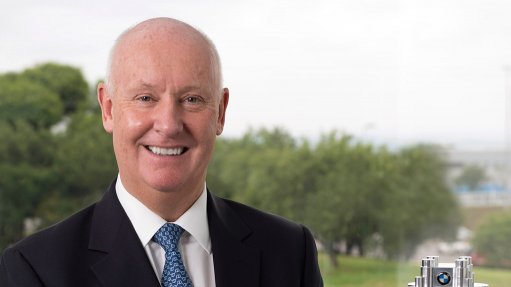
Tim Abbott
The South African premium car market has seen four years of decline, ending 2018 below 50 000 units, says BMW Group South Africa (BMW SA) CEO Tim Abbott.
The first quarter of this year has also not signaled a turnaround, with sales below that of the first three months of 2018, he adds.
The previous peak for the premium market was around 80 000 units in 2012.
Abbott says premium car sales could receive a boost post the May 8 national elections, with voting always bringing a degree of uncertainty to the market. However, he believes it would be good news if the domestic premium car market ended the year on par with 2018 numbers.
Volvo Car South Africa (Volvo SA) MD Greg Maruszewski notes that the local premium car market is down 20% to date this year.
Even if the market recuperates after the elections, it would have to “sell flat out” to make up the 20% already lost.
“We would be lucky to see a flat market,” says Maruszewski.
For Volvo SA itself, however, 2019 is promising to be another excellent year.
Sales were up 33% in 2018, with another 55% jump recorded in the first quarter of this year.
“We are increasing our market share, but the pie is getting smaller,” says Maruszewski.
Volvo SA is indeed growing its market share rapidly, expanding from a 2.9% share of the premium market in 2015, to 5.6% in 2018, and with 8.5% a distinct possibility this year.
The Swedish brand’s popularity is being driven by, among other reasons, the number of new models available in the local market. These include the XC60 and XC40 sports-utility vehicles, which are currently in short supply.
TRANSFORMATION FUND
South Africa’s largest vehicle manufacturers will approach the Department of Trade and Industry in the “coming weeks” regarding a proposed transformation fund that aims to develop black-owned dealerships and component manufacturers, says Abbott.
The R2.2-billion pot will be funded by South Africa’s six biggest vehicle manufacturers, namely BMW, Mercedes-Benz, Toyota, Volkswagen, Nissan and Ford.
The fund may eventually also include tier one component manufacturers, as well as vehicle importers, says Abbott.
He says one of the aims of the fund is to establish tier two and three component suppliers, in an attempt to increase the local parts content on vehicles assembled in South Africa.
Abbott believes it may be possible for vehicle manufacturers to achieve level four on the black economic empowerment scorecard through the fund, “if we do this right”.